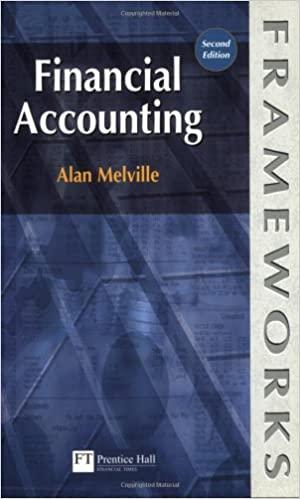Answered step by step
Verified Expert Solution
Question
1 Approved Answer
Liz Ortega builds custom cabinets. The process usually begins with a preliminary visit to a potential customer location to take measurements and prepare a bid.
| Liz Ortega builds custom cabinets. The process usually begins with a preliminary visit to a potential customer location to take measurements and prepare a bid. Measurements and bidding are done by a salesperson. Many times, this preliminary visit does not result in an order. Once an order is received, there are a number of order-specific "shop setup" processes (calibrating saws, lathes, sanders, etc.). The "shop setup" process is the same no matter how many individual cabinets are produced for each order (i.e., some orders are for just a few cabinets, and some orders are for hundreds of identical units). Setup is followed by production, and the amount of time and labor is heavily correlated to the number of units produced in the order. The final step is delivery to the job site, and the cost for this activity is mostly a function of distance from shop to job site. | |||||||
| Liz has been applying factory overhead based on direct labor hours, and realizes that this costing model is sometimes ineffective in producing competitive and/or profitable bids. She has read about "activity-based costing" and is interested in perfecting her bidding process based upon ABC methodology. | |||||||
| Ortega's total cost for a recent period are as follows: | |||||||
| Direct material | $ 300,000 | ||||||
| Direct labor | 200,000 | ||||||
| Indirect material | 40,000 | ||||||
| Indirect labor | 60,000 | ||||||
| Shop depreciation | 150,000 | ||||||
| Shop maintenance | 25,000 | ||||||
| Other shop costs | 35,000 | ||||||
| Administrative salaries | 90,000 | ||||||
| Sales salaries | 55,000 | ||||||
| Transportation | 20,000 | ||||||
| Liz has examined her business and concluded that she has four basic activities: bidding, machine set up, production, and delivery. During the period for which the above costs were incurred, 75 jobs were bid, resulting in 25 orders. The ratio of bids to orders was about normal. Each order required a separate shop setup. There were 2,000 cabinets produced. Delivery distance for the orders totaled 4,000 miles. Ortega conducted a study to determine the portion of each cost category that is attributable to the four activities. The results of this study are summarized in the following table. | |||||||
| Bidding | Set Up | Production | Delivery | Unallocated | |||
| Indirect material | 5% | 15% | 75% | 5% | 0% | ||
| Indirect labor | 10% | 20% | 50% | 20% | 0% | ||
| Shop depreciation | 0% | 15% | 80% | 5% | 0% | ||
| Shop maintenance | 0% | 40% | 55% | 5% | 0% | ||
| Other shop costs | 0% | 60% | 40% | 0% | 0% | ||
| Administrative salaries | 20% | 0% | 25% | 10% | 45% | ||
| Sales salaries | 95% | 5% | 0% | 0% | 0% | ||
| Transportation | 30% | 0% | 0% | 60% | 10% | ||
| (a) | Determine the total cost of each activity, and calculate a cost per unit of measure. | ||||||
| (b) | Ortega's salesperson has been asked to bid on an order involving 50 cabinet units. Delivery requires 60 miles of driving. If the goal is to price orders at 200% of the activity-based cost (including direct material and direct labor, but excluding unallocated costs), what price should be quoted? | ||||||
Step by Step Solution
There are 3 Steps involved in it
Step: 1

Get Instant Access to Expert-Tailored Solutions
See step-by-step solutions with expert insights and AI powered tools for academic success
Step: 2

Step: 3

Ace Your Homework with AI
Get the answers you need in no time with our AI-driven, step-by-step assistance
Get Started


